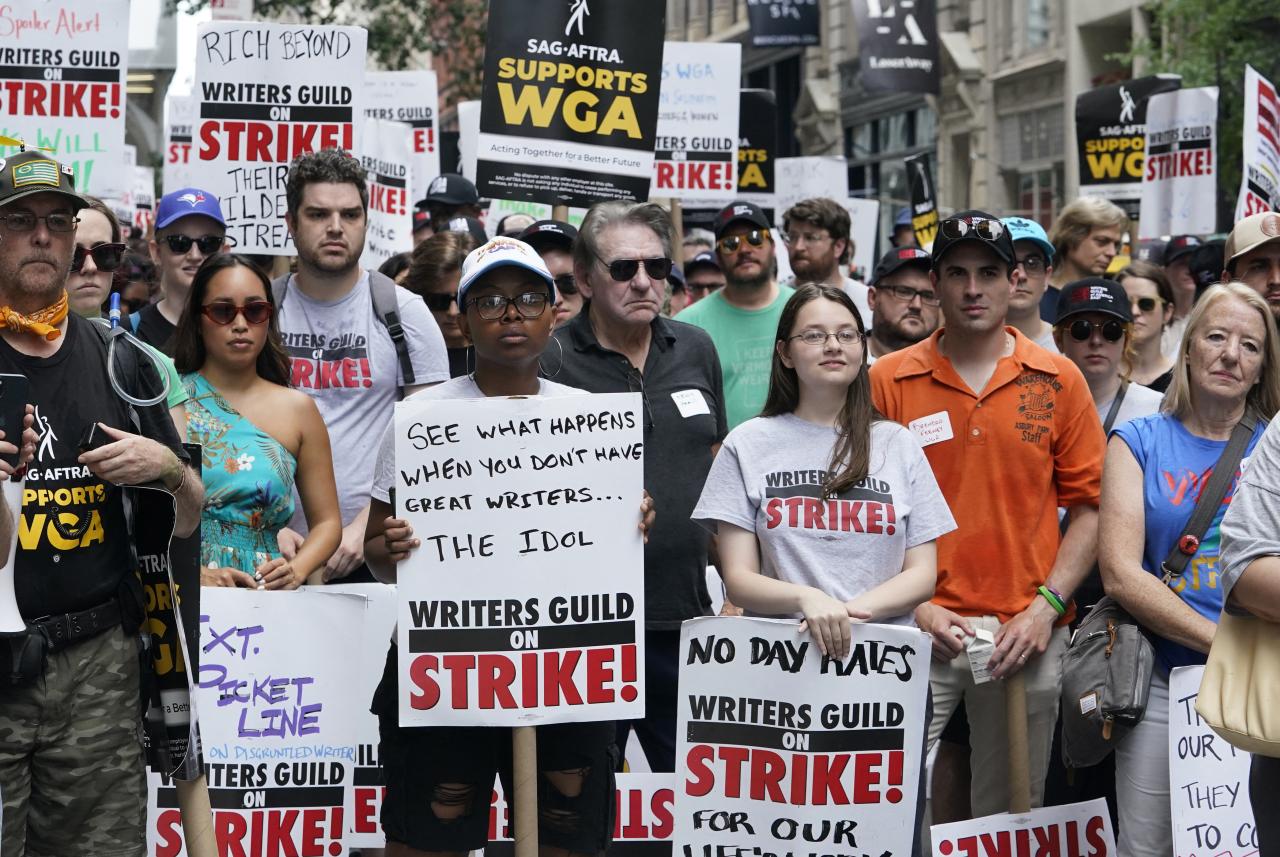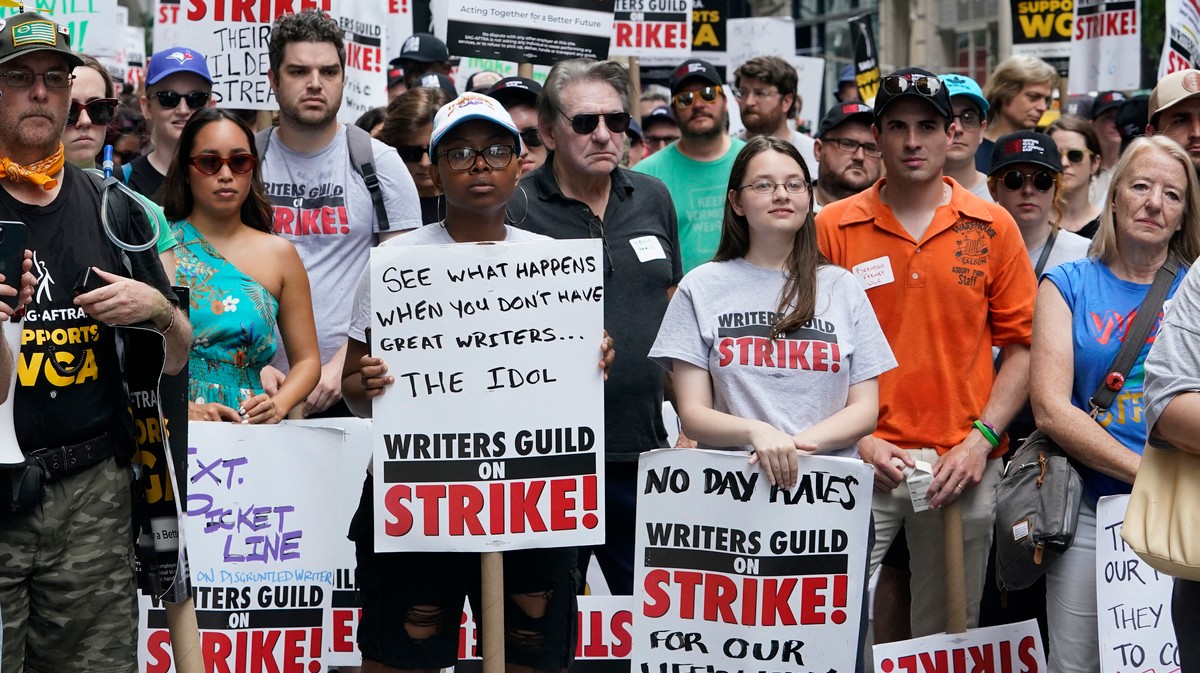Hollywood strikes ripple through the zeitgeist, intentionally or unintentionally pushing new forms of media into the limelight. A Hollywood writers’ strike in the 1980s coincided with the rise of Cops and America’s Most Wanted. In the 2000s, it was the celebrification of reality TV, ushering in Keeping Up with the Kardashians and Trump’s Celebrity Apprentice. Now, our media landscape is more fractured than ever—which way will culture go next?
Advertisement
As the Screen Actors Guild joined the Writers Guild on a historic strike, people took note of all the things not affected by the work stoppage. While unionized actors and writers won’t be making new shows or promoting existing ones, there are plenty of things they can do without crossing the picket, like record voiceovers for video games or make branded content. Here’s the full list of what’s not off-limits.
Of course, the most important result is to ensure fair wages. But this strike could also serve as a catalyst for unforeseen trends, as actors and writers venture beyond their usual roles and entertainment companies shift their budgets to fill the attention gap. Welcome to the brave new world of striking Hollywood.
Expect to see more TikTok stars and influencers on screen
With actors and writers on strike, expect studios to start sliding into the DMs of content creators and influencers to plug the content gaps. But, as WGA and SAG member Franchesca Ramsay warns, “If you are a content creator or influencer with any aspirations to become an actor or writer in the future, now is not the time to take a job… [It] is considered scabbing and it will hurt your career in the future and make it difficult for you to potentially join the union.” Will people end up just spending more time eating virtual ice cream on TikTok Live?
Even more celebrity audiobooks and podcasts
Podcasting boomed before and during the pandemic, but it’s been a tough few years since. People are launching fewer new shows these days, and earlier this year, there were big rounds of podcast-related layoffs at Spotify and NPR. But the strike doesn’t affect unionized podcasters or prevent actors from recording audiobooks or hosting podcasts, so long as it’s not about promoting TV or movies. And with Spotify and Amazon’s Audible known to court celebrities, perhaps we could see a new slate of big-budget shows and audiobooks with big-name hosts.
Red carpets are going to get weird
With actors banned from doing any kind of promotional work, premieres are going to look a lot less starry—if they happen at all. (See: Cillian Murphy and Emily Blunt literally walking out on Oppenheimer in London once the strike was announced on Thursday.) Expect directors and other adjacent talent to pick up the slack, with probably less investment from fashion houses in placing clothes with stylists and actors. Greta Gerwig and Dua Lipa are going to have to singlehandedly carry the Barbie red carpet now.
Musicians will make more music (and actors will, too)
The Weeknd, with his lambasted HBO show The Idol, is hardly the only artist to leverage their music career to make money in film and TV. That’s basically how entertainment works now. Now, with musicians cut off from that income stream—and the strike not barring music videos—we could expect more studio time and ultimately more new releases from Selena Gomez and behind-the-scenes-focused Kendrick Lamar, and perhaps a rekindled focus on music from people like Euphoria’s Dominic Fike. Maybe straight-up actors will pivot, too: remember when Joaquin Phoenix quit acting to pursue a rap career?
A lot of confusion about UK productions
Is a British actor working on a film? Scab! Or wait. What are the rules, exactly? Though the UK actors’ union Equity released a joint statement with SAG in support of the strike, things are trickier over the pond. Thanks to regressive anti-strike laws in the UK, Equity members aren’t legally allowed to strike in solidarity with SAG. If an actor in the UK chooses to join the strike, that means they won’t be legally protected from getting fired or sued for breach of contract—which is why UK-based productions like House of Dragon can continue filming. Don’t hate the players, hate the game (the game being British industrial relations legislation). Probably, the streamers in the US will shill international dramas even harder.
Related posts:
Views: 0
 RSS Feed
RSS Feed

















 July 15th, 2023
July 15th, 2023  Awake Goy
Awake Goy 

 Posted in
Posted in  Tags:
Tags: 
















